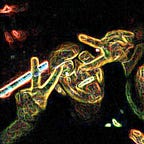The Conforming Truth
In the 1800’s, Friedrich Nietzsche wrote about how language have taken humans further away from the truth of things, and how humans strive toward the formations of metaphors. He explains this phenomenon by giving the example of the word “leaf”, and how the word has made the true meaning what a leaf really is disappear. Nietzsche’s thought is very much relevant in todays society, even more so with social media. As humans we have totally lost the concept of a leaf, but on top of that, we are trying to portray ourselves as something totally different from who we really are, by posting images of ourselves with catching hashtags to be noticed on different social media sites.
We disguise ourselves to be looking like we are living our lives to the fullest and looking good doing it, in hope that we get approval from our “friends”. Most of the times, we get the approval, and can count how many likes we get. Even though most of us know that we adjust the photos to make us look better, we still approve of this, in hope that we are getting the same approval back in return. The advertising business has been doing this for years, but since technology has advanced, we all have access to retouch our boring selves to be on the cover of the magazine. Since everyone approves of these dishonest portrays, we get even further away from the truth and continue the cycle. In a way we have blinded ourselves to fall for the illusion of the photograph, and there is a comfort to know that we all can cover up the truth. It is not necessarily what we think looks better, but our idea of what others would like. Therefore, instead of breaking free from this illusion, we buy into it, and the not so normal becomes normal.
Andy Warhol took a soup can and made people notice it. He did this by bending the truth to make people admire it, and took the soup can out of its function and everyday concept to let it shine in the spotlight. If it worked for a soup can, why wouldn’t it work for ordinary people like us? Just choose a filter, and angle the camera in a position that will hide all the flaws. We have all become editors, and we are editing away parts of our being, to feel fulfilled with our existence. The 15 minutes of fame that Andy Warhol predicted everyone was going to have became reality. The actual selfie has become more valuable than the moment or experience itself, in the way that the moment becomes irrelevant if you cannot share it with the world. I think it is time for us to stop hiding behind the filter, and start to live our lives without worrying about what other people would say about it. If you really think about it, who decided that the original wasn’t the better version of the two?
